One of U.S. Army Gen. David Petraeus’ first moves after taking command of the nine-year-old NATO war effort in Afghanistan three weeks ago was to begin forming what the top U.S. military spokesman characterized as “community policing units” to help bolster local security in Taliban-plagued areas. The impetus behind the scheme was simple enough. “We clearly do not have enough police forces to provide security in enough of the populated areas,” top Pentagon spokesman Geoff Morrell admitted. Nevertheless, reaction to the plan was swift and alarmed. Afghan President Hamid Karzai reportedly objected to it — and for good reason. On […]
Asia-Pacific Archive
Free Newsletter

The member states of the Organization for Security and Cooperation in Europe (OSCE) finally took resolute action to assist fellow member, Kyrgyzstan, which remains vulnerable to further mass violence and other disorders due to its multiple difficulties. At a meeting this weekend, the foreign ministers of the 56-state grouping endorsed a package plan to increase the OSCE’s presence in the region as a catalyst to mobilize additional international support for the beleaguered country. The same governments will meet again in a few days, at a session of the OSCE Permanent Council in Vienna, where they should endorse the intervention package. […]
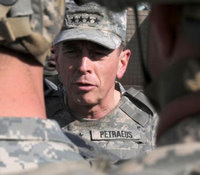
With his recent selections of Gens. David Petraeus and James Mattis for command in Afghanistan and Central Command respectively, President Barack Obama signals his understanding that his previously established deadline of mid-2011 to begin drawing down combat troops in the “good war” cannot be met. The two were co-architects of the military’s renewed embrace of both counterinsurgency operations and the associated nation-building project that by necessity goes along with it. Neither flag officer can be expected to preside over a Vietnam-like exit that once again puts troubled and untrustworthy Pakistan in charge of Afghanistan’s fate. And so, despite the conventional […]

The Supreme Court’s recent ruling on Holder v. Humanitarian Law Project tightens the straightjacket that our current terrorist list system has placed on American diplomats and social scientists. In a 6-3 decision, the court ruled that the First Amendment does not protect groups or individuals who provide “expert advice or assistance” or “training” for pacific means to proscribed terrorist groups. For non-governmental peacebuilding groups that conduct workshops and promote dialogue as critical elements of their work, this decision is catastrophic. Now, even individuals who, through direct communication, urge proscribed terrorist groups to disarm and participate in negotiations are vulnerable to […]
India and Canada signed a civil nuclear cooperation agreement on the sidelines of the G-20 Summit in Toronto late last month. In an e-mail interview, Ernie Regehr, a Centre for International Governance Innovation fellow, co-founder of Project Ploughshares, and adjunct associate professor of Peace and Conflict Studies at Conrad Grebel University College, explains broader India-Canada relations. WPR: How would you characterize India-Canada bilateral relations, historically? Ernie Regehr: India-Canada relations are remarkably modest considering the rather compelling circumstances that surround them. They share membership in the British Commonwealth. They are both politically resilient democracies. There are more than a million people […]
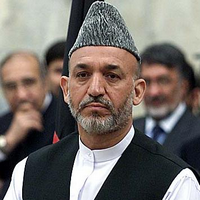
U.S. strategies in two key fronts of the ongoing struggle against terrorism and extremism — Afghanistan and Somalia — are predicated on one critical element: the eventual emergence of a central government that can establish its writ throughout the territory nominally under its jurisdiction. And in both cases, the central governments that exist on paper seem to offer little hope for success. Diplomats may recognize Sheik Sharif Sheik Ahmed, the head of the Transitional Federal Government (TFG), as president of Somalia, and Hamid Karzai has held the presidency in Afghanistan for many years now. But oftentimes it seems that both […]
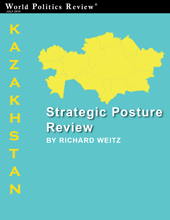
Kazakhstan’s natural resources, booming economy, and strategic geographic location have made it an emerging star in world politics. Thanks in particular to the recovery of world oil prices during the last decade, the country has been able to enjoy a rising standard of living as well as acquire the capital to exploit investment opportunities in neighboring states. These nations in turn have eagerly sought to bolster trade and other economic ties with Kazakhstan. Under President Nursultan Nazarbayev, who has been in office since Kazakhstan declared independence on Dec. 16, 1991, Kazakhstan has remained committed to a “multi-vector” foreign policy that […]
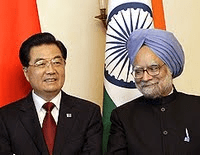
Indian National Security Adviser Shiv Shankar Menon had plenty on his diplomatic plate during his three-day visit to China earlier this month. Apart from exploring new avenues of cooperation, the trip also focused on broadening existing bilateral ties and charting out a roadmap for future engagements. With the trip coming after a year of renewed strains between the two countries, including reports of incursions by Chinese troops into disputed border areas as well as a spate of trade quarrels, Menon’s task was by no means an easy one. Moreover, the trajectory of Sino-Indian relations has historically been unpredictable since the […]
The leaders of Japan and Russia met on the sidelines of the G-20 Summit in Toronto late last month to discuss ways in which they could move forward with negotiations over a longstanding territorial dispute over the islands of Etorofu, Kunashiri, Shikotan and the Habomais. A week later, Russian military forces carried out a drill on one of the disputed islands, leading Japan to express its objections. In an e-mail interview, Dr. Alexander Bukh, associate professor at Japan’s Tsukuba University and author of “Japan’s National Identity and Foreign Policy: Russia as Japan’s ‘Other,‘” explains the historical context for the ongoing […]
The British 16 Air Assault Brigade prepares for a six month deployment to Helmand province. Preparations include not just familiarizing themselves with equipment, but also involve practicing joint patrols with Afghan troops and learning how to handle themselves in culturally defined communication, such as shuras, with tribal elders.
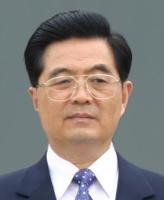
BEIJING — In addition to now holding three of Iraq’s 11 major oil concessions, China has also been investing heavily in Afghanistan, and recently signed a high-profile nuclear deal with Pakistan. These significant strategic developments in all the major geographic theaters of the U.S. War on Terror further demonstrate the efficacy of Beijing’s economy-first diplomacy and reflect China’s growing influence in Central Asia as a whole. These gains have been facilitated by more than a decade of aggressive diplomacy throughout Central Asia, both through multilateral mechanisms such as the Shanghai Cooperation Organization (SCO), as well as through strengthening bilateral ties […]
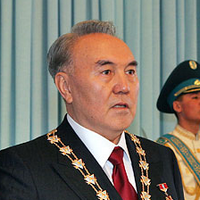
Last month, the Conference for Interaction and Confidence-Building Measures in Asia (CICA) passed an historic milestone, as heads of state and ministers representing 36 Asian nations met for the first time outside of Kazakhstan for a summit meeting in Istanbul. The organization, Asia’s equivalent to the Organization for Security and Cooperation in Europe (OSCE), boasts 22 member nations, ranging from Russia and China to Israel, India and Pakistan. Regrettably, Western media coverage of the summit focused almost exclusively on one sensational event: Iranian President Mahmoud Ahmadinejad’s tirade against Israel’s interception of the Freedom Flotilla to Gaza. The flavor of this […]
Pakistan recently decided to move forward with a gas pipeline project with Iran, despite warnings from the United States that involvement could subject Pakistani companies to new United States sanctions. In an e-mail interview, Harsh V. Pant, lecturer in the Department of Defense Studies at King’s College of London, explains the pipeline’s significance in the context of Pakistan-Iran relations. WPR: What are the driving interests for both parties in this pipeline project? Harsh V. Pant: Pakistan’s growing energy needs and Iran’s pool of energy resources make the two states natural economic partners, and served as the impetus behind the proposed […]
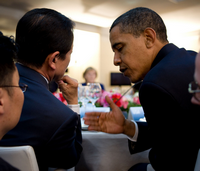
The debate over whether or not we have entered a “post-American world” has, at least in U.S. circles, become predictably stale. In one corner are those sneeringly referred to by their opponents as the “declinists” — a more neutral label might be “post-primacists” — who trot out all sorts of facts and figures demonstrating the debilitating costs of America’s imperial overstretch, and argue that the torch of global leadership is passing to new aspirants hungry for the job. In the other corner are the perennial optimists, who have their own statistics to show that even if the U.S. is facing […]
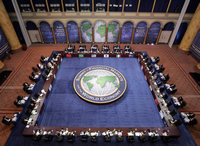
In the 1960s, University of Michigan scholar AFK Organski predicted that a populous, industrious China would rise in the East to challenge America as the world’s paramount power, and that the U.S. and Soviet Union would ally against China despite the communist allegiance shared by the PRC and USSR. Fifty years later, we can be increasingly certain that Organski was impressively ahead of his time with this prediction. Of course, the Soviet Union no longer exists and China is an authoritarian capitalist rather than communist state. But Organski calculated how China would eventually dwarf Russia in demographic and economic might, […]
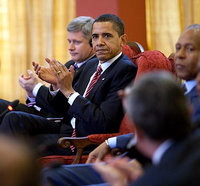
Reports of the imminent death of U.S. hegemony in world affairs go at least as far back as the Nixon administration, and to date, they have all disappointed. While challengers have risen and fallen, none have managed to make themselves full-spectrum superpowers capable of both diplomatic leadership and global military reach, in combination with indisputable economic heft and soft-power appeal. Now, with the “rise of the rest” — concentrated in, but not limited to, the so-called BRIC package of Brazil, Russia, India and China — we are presented with the argument of a collective challenge to American world leadership. Let […]
